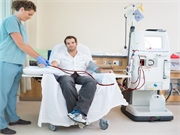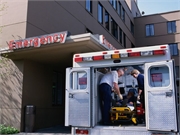
As COVID-19 infections surge across the United States, 11 states could find themselves with too few doctors to treat non-COVID patients in intensive care units, a new report finds. Arizona and Texas already have a shortage of such doctors, the researchers added. “This week’s update shows that Alabama, Arkansas, Florida, Idaho, Louisiana, Mississippi, Nevada, Oklahoma,… read on >






























